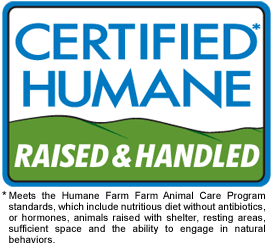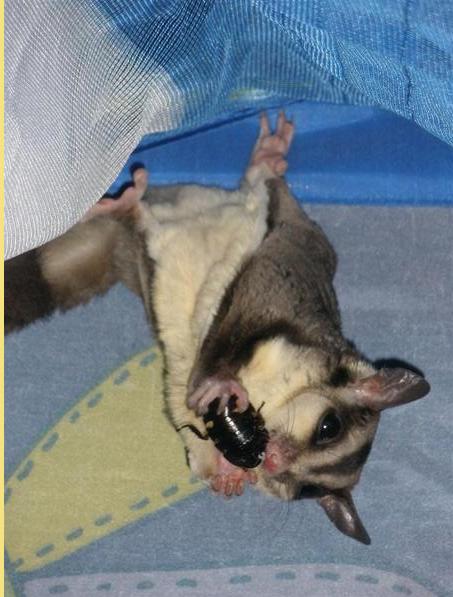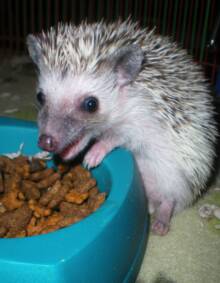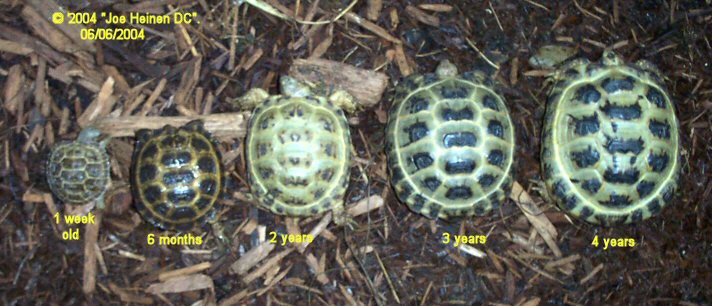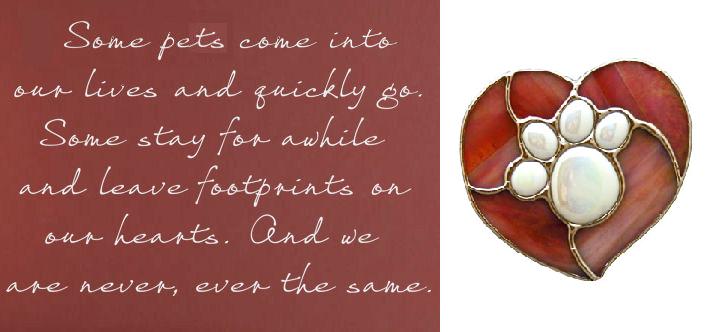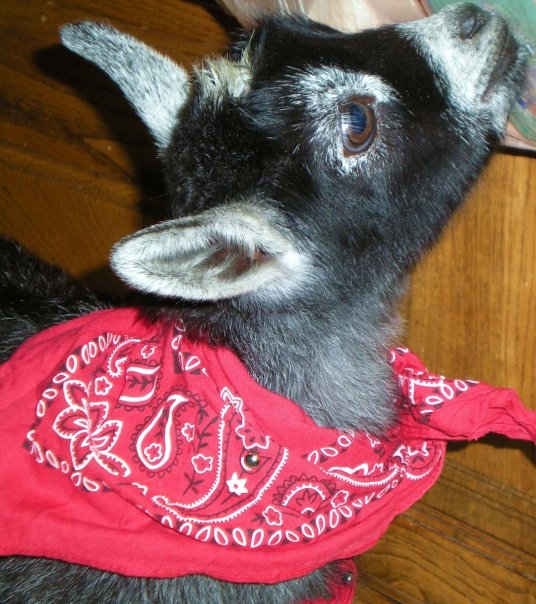

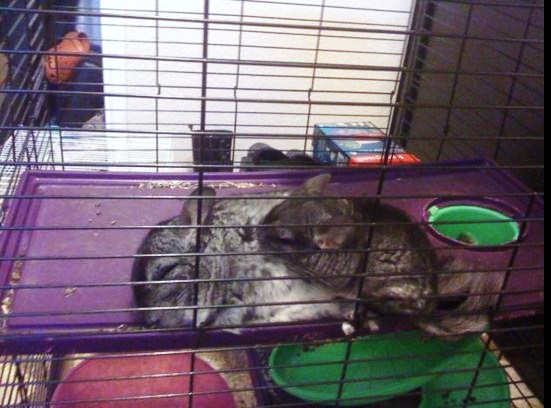

Q & A about Animal Welfare
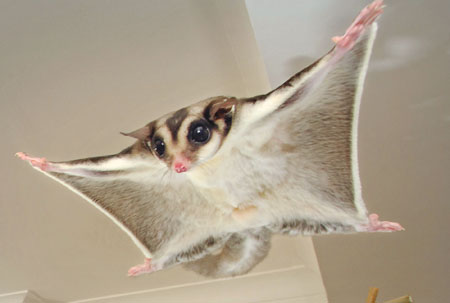
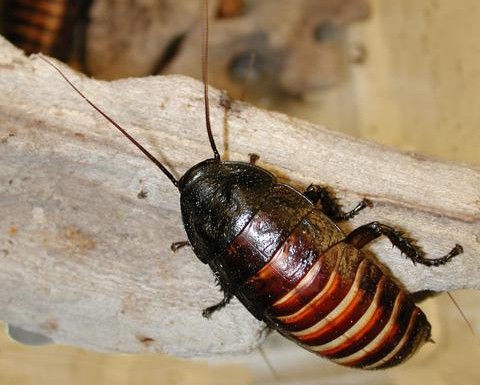
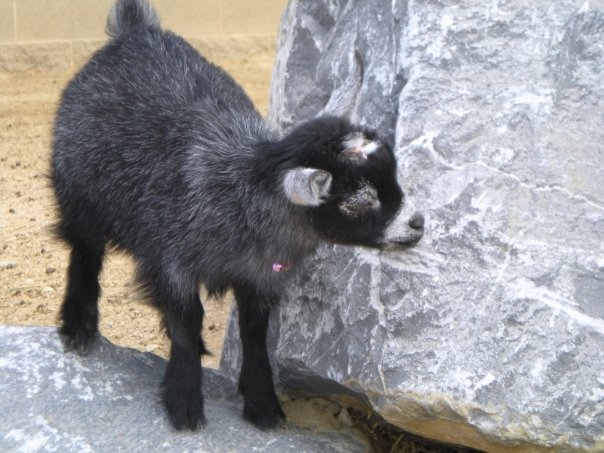
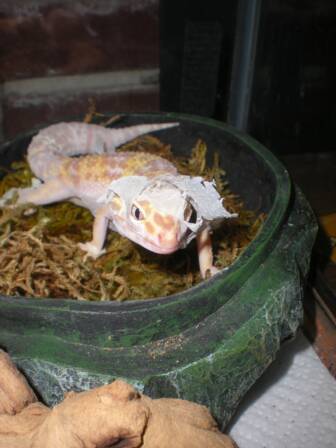


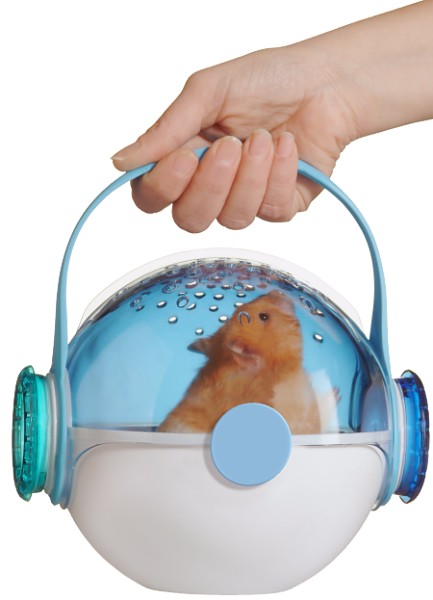
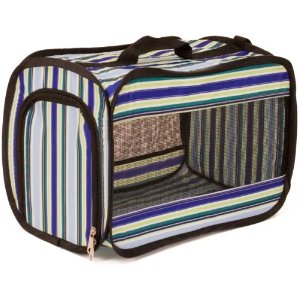
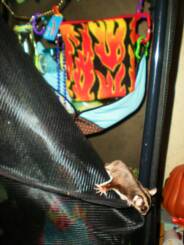

Can your animals really live in those bins you bring to parties/classes?
Nope. Except perhaps the Madagascar hissing roaches, who do not need a great deal of space. The Pacman frog, too, would be content in a cage not much bigger than what he is carried in. But most of them, absolutely could not live in the bins I use as carriers. Do you live in your car? Well, if you do, you probably don't like it very much!
Then we drill holes (dime size all over the lid,
pencil width along the sides to allow for airflow.
The frogs, because they must stay in their carriers
for the whole show, being mostly untouchable, need
Still I have it on hand in case they HAPPEN to be
awake and hyper where they should be contained. This
one thing I know about animals no matter what: THEY
ARE UNPREDICTABLE!
So, that covers their "cars"... what are their "houses" like?
Our animals live with us in our home where they are part of our family. We don't have a "Critters 2 Go Zoo" that you can come visit... we don't want tourists walking around our livingroom while we sort the laundry or clean cages! Though, if you have a valid concern about the welfare of our animals, maybe we can arrange a visit to our home so you can be sure they are being cared for like they deserve! (ie: spoiled!).
Most of the animals indoor enclosures are in our family room, mostly so that we can see them all the time and make sure we are meeting their needs. The tortoise's sand box and the Madagascar hissing roaches' bin are both in a room off the livingroom.
So, cages:
about sugar glider care, check out their OWN site,
The Chinchilla has a 18" x 30"
x 29" cage with 3 level shelves
which she spends a lot of time
hopping from shelf to shelf. She
also runs on her saucer wheel.
In addition, she, like the
gliders, get frequent "tent time"
out of the cage to play.
The Hedgehog has a plastic
bin... but not a little one like
a carrier. It is 33" by 18" by
12" (though the 12" is the
height, and her huge bucket
wheel (A Carolina Storm Wheel)
takes the whole thing's height
up to 18" or so. Good thing she
doesn't need a lid!
She also spends several hours a
day in her playpen which is
about 36" diameter. For LOTS
more about hedgehog care, check out our new [Hedgies] 2 Go site, starring our own Tess LaRue!
So, who is up for an upgrade?
This summer we are doing a huge remodel
of Bratanik (the Russian Tortoise)'s
outdoor tortoise garden... and adding
on an area for Tortuga the Red Eared
Slider and a brand new POND!!!
Different species reptile species
should not be housed together, share
the same water, etc. so there will be a
wall between them, but we are SO glad
to get Tortuga out of her 50 gallon
tank and into a roomy pond, at least
for the warm months. Stanley the
Bearded Dragon still has to wait a
bit before he can get out of his 30
gallon long tank and into something
roomier. When he is his adult size,
the tank is just not going to work for him! So that is coming up. Tess, the hedgehog, is likely getting a second bin connected by ferret tubes. BACK TO THE QUESTIONS...
Are your shows just a way to peddle animals to kids?
No. One of the main things we try to teach is RESPONSIBLE pet ownership. To be honest, we spend a lot of our time talking people OUT of getting high maintenance pets that they are not prepared for! Exotics are not for everyone, and they are especially not for most children.
While we do responsibly breed a few pets, we do not sell to kids at parties. We are, however, happy to answer pet care questions, including helping you find the right pet your family. Because we often foster rescues, we may also be able to help you locate that animal. But education comes first!
As for breeding, we do sell Madagascar Hissing Cockroaches, which are one of the lower maintenance pets available. Therefore, we are happy to sell them to any family who has done their research.
Our other breeding projects in the
future include [Hedgies] 2 Go, 1-2
litters a year, all pedigreed and
vet checked and [Geckos] 2 Go,
possible clutches of Leopard
Geckos if ever our SHCT male, Jack,
is in top health again and a fat,
healthy female is found
(Clementine, our current female,
is a half-blind rescue who
continues to be a "special needs"
lizard, so we will NOT be breeding
her!). These are projects
separate from our shows and classes
and always undertaken with care,
planning, and overseen by our
exotic vet. Rescues come first,
and we are as happy to help someone
adopt an older pet as we are to
place babies! If you are looking for a rescue of ANY small exotic, we highly recommend you join Mountain West Pocket Critters Conference! Rescues are never bred because their health history as well as pedigree can not be certain.
I think sugar gliders shouldn't be pets! Don't poachers steal them from their mothers and smuggle them into the country?!
Whether you believe sugar gliders should be pets or not, they are here in the US as pets and it is up to us to make sure that those who wish to keep them, keep them correctly. They are very high maintenece animals. We at Critters 2 Go do NOT recommend sugar gliders as pets to many people. Very few a prepared to deal with the complex care these animals need. However, some "facts" about sugar gliders being shared by animal rights groups and others are not true.
Myth #1: "Pet Sugar Gliders support the illegal exotic pet trafficking of smugglers and poachers!"
Fact: Smuggling of sugar gliders certainly still happens... but not here in Utah. Because sugar gliders are relativley easy to breed, it is just not worth the risk of prison time or expensive fines to smuggle in a wild caught sugar glider. Unscrupulopus, unethical people are far more likely to buy from a bad breeder, breed their own unhealthy gliders, and sell them that way. So we battle quite a different evil here. That being said, whether it is sugar gliders, tortoises, etc. We do NOT support the wild caught exotic pet trade.
Myth #2: "Poachers rip baby sugar gliders from the arms of their mothers in the jungle!!!"
No. Not even back when they were wild
caught, no. There are many responsible
breeders that raise them, in captivity
in the US and have for decades. My Sugar
High, a USDA licensed breeder right here
in Utah has lineages and careful breeding
practices. While they no longer breed,
our girls were from My Sugar High and so
we knew their pedigree back several
generations.
There are also many breeders who are not
other bad practices. Tropical Attitude, Perfect Pocket Pets, and Custom Cage Works are just a few. By doing some research you can avoid breeders and brokers that amount to "exotic animal mills."
"Stealing babies from the jungle" scenario for ANY exotic is less and less likely nowadays when a prospective pet parent looks for a legal, USDA licensed breeder. Never be afraid to ask the breeders weening practices and choose one you feel comfortable with. And never be part of illegal smuggling of animals.
Is it legal for you to own those animals?
Not all exotic pets are legal to own in Utah where we are located, even some that are legal in many other states (like degus and domesticated skunks). However, Critters 2 Go promotes RESPONSIBLE exotic ownership, including obeying local laws. Every critter that comes to your house/classroom/event is legal. If that ownership requires a special license, be assured WE HAVE IT! We are overseen by the USDA and are also members of REXANO (Responsible Exotic Animal Ownership) in other governing institutions such as the International Hedgehog Association which dictate exemplary care of specific species we own or rescue!
So, the short answer? YES. :)
Do you eat meat? Do you feed your animals vegetarian choices?
Personally, no. I almost never eat meat.
(Partially because of medical reasons.) I do
eat eggs, though, and sometimes cook with
cow's milk (though I drink almond milk,
usually.). But, I try to choose those who
use more humane methods when possible. (For
instance, eggs from local, well-kept
"backyard" chickens!)
However, I believe that a vegtarian or vegan
lifestyle should NEVER be pushed on someone
else! I'm the only one who chooses this in
my family, and I won't shove it down their
throats. That kind of commitment is a
PERSONAL one and nobody should be forced
into it. This is never more true than with
MY ANIMALS!
I believe that when you have a pet, be it a cat, dog, or something more exotic, that you have a responsibility to let them be WHAT THEY ARE! I am against de-clawing of cats, de-barking of dogs, and generally trying to make animals into furry humans instead of loving them as they are! This includes their diets.
The only critters that I feed vegetarian diets are the HERBIVORES. The Russian Tortoise, the chinchilla, the snails, and the Giant Black African Train Millipede eat only plant matter.
Strict carnivores like the leopard geckos, Pacman frog, tree frogs, and the feral cats that we care for in the neighborhood, get ONLY meat (insects in the first 3 cases.).
And our many omnivores like the sugar gliders, the hedgehog, the bearded dragon, the turtle, the hermit crabs, and fish, eat a healthy mix of both, the right balance needed for their species.
Unfortunatley, there are those who will tell you that you can feed any animal a vegetarian diet. Many do this out of "ethics," as in they feel it is morally wrong for their pet to eat meat. Please understand, that animals do not have the same "ethics" as humans! (interestingly, those same people who feel it is cruel to let their animals eat animals, never seem to think it is cruel to deny their animal a natural, healthy diet risking severe malnutrition, even when feeding them plenty of food!)
Others have another "rea$on" for pushing vegetarian diets. It makes them easier to sell! Glider mills like Perfect Pocket Pets claim that meat makes sugar gliders "meaner" and "stink more!" Because sugar gliders require pretty complex diets and since feeding them bugs turns a lot of people away from buying these high meaintenece pets, it is in their best financial interest to sell their own "easy to feed" pellets, filled with no pricey meat but plenty of cheap corn filler (and other fillers!) That way they not only make their "product" (sugar gliders) seem easy and more attractive, but can sell you bags of their own kibble!
Meat, including Raw diets, does not make an animal that requires it vicious or smelly... it keeps them from developing problems caused by severe malnutrition (like Metabolic Bone Disorder or Hind Leg Paralysis in sugar gliders.)
Are you considering feeding your pet, vegetarian? From this article on Petside:
So, the short answer is, I don't eat meat, but my animals definitley do!
What's on the menu at our house?
Sugar Gliders: a high protien mix diet called HPW, fresh organic fruits and veggies, treats of mealworms, roaches, chicken, etc. (for more about diets and other care for sugar gliders, visit here.)
Hedgehog: a mix of 4 high quality, grain-free,
commercial kibble foods, fresh fruits and
veggies (that she rarely touches yet), treats
of mealworms, roaches, chicken, etc. (for more
about diets and other care for hedgehogs, visit
here.)
Chinchillas: Loose timothy hay (we like Oxbow!),
commercial timothy (not alfalfa!) based
chinchilla food, treats of uncooked old
fashioned oatmeal and occassional organic greens. (for more about diets and other care for chinchillas, visit
here.)
Bearded Dragon: Organic mixed greens with
ocassional grasshoppers, crickets, mealworms,
roaches, etc. all gutloaded and dusted.
Leopard Geckos: Crickets, mealworms, and roaches,
all gutloaded and dusted. (for more about diets
and other care for leopard geckos, visit here.)
Hermit Crabs: Organic fruits, vegetables, shrimp, bloodworms, honey, all-natural peanut butter, unsalted and unbuttered popcorn, and, yes, even hermit crab food (though the one we like is Gardner's and it is very hard to find!)! (for more about diets for crabs, check this out. For basic care of hemit crabs, visit here.)
Russian Tortoise: Organic greens (and a lot of organic WEEDS!), Timothy hay, rare treats of spineless cactus pad or very rarely, pumpkin.
Red Eared Slider Turtle: ZooMed turtle food, shrimp, bloodworms, chicken, roaches, organic greens.
Frogs: Crickets, gut-loaded.
Madagascar Hissing Cockroaches: high-quality grain-free dog food, fruit and veg scraps. (for more about diets and other care for Hissers, visit here.)
Giant Black African Train Millipede: Organic fruits, vegetables, greens (and a lot of organic WEEDS!), dead pesticide-free leaves.
Do you believe in buying animals from pet stores?
West Pocket Critters Conference (MWPCC) to stay
aware of unique pets in need!
2nd: to buy from a responsible, ethical
breeder!
Sometimes, try though we might, we can not find
our dream pet at the animal shelter. Or maybe
you have aspirations of breeding your pet, in
which case you should NOT be looking at shelter
pets as they do not have the essential pedigree
and health history that you need as a responsible breeder of any kind! For these cases, you may need to go straight to a breeder for your pet. And that's okay!
Contrary to the opinions of groups like the HSUS and PETA, not all breeders are bad! Not all large scale breeders are "mills" and not all small breeders are shady BYBs! There ARE good breeders... but you DO have to do your homework to find them!
Just be sure you ONLY support breeders who breed ethically, take superior care of their animals and take steps to be sure YOU do TOO, and that breed responsibly (not overbreeding thier animals, making sure they do not create more babies than they can find homes for, getting each of their own animals and those they sell health checks at a qualified veterinarian, etc.)! Don't be afraid to ask a breeder a LOT of questions... and don't be surprised if an ethical breeder asks YOU just as many! Mills crank out pets like products and see them as furry little dollar signs. A good breeder wants to make sure that this pet is right for you, but is equally conserned with whether YOU are right for the animal!
To find breeders that are good, you will probably
need to look beyond the want ads, KSL, etc. Get
involved in the community around that animal. If
you want to find a good sugar glider breeder, join
Glider Central. If you are looking for a specific
breed of dog, find a local dog club for the breed
through the AKC. For any small exotic, join
MWPCC. For reptiles, you may want to go to a few
reptile expos. For hedgehogs, look for a breeder
that has been accepted into the HBA and IHA. Talk
to experienced owners of the pet you want. (You
are always welcome to write me to ask for
recommendations, as well!)
3rd: to buy from a knowledgable pet store!
While options 1 and 2 are always better, sometimes they just aren't possible. Selecting a pet from a pet store can be tricky. Many pet stores stock their
puppies, kittens, and even
ferrets, rabbits, and
other small animals from
mills. Most sell wild
caught reptiles, but label
them captive born. Even
more ridiculous, pet store
chains often claim things
like that their obviously
4+ year old, wild caught
tortoises are 4 MONTH old
captive born! (For more
lies, read here.) Picture
courtesy of the WONDERFUL
resource, RussianTortoise.org)
So, where did our animals come from? A little of everything!
RESCUES: Not all of our animals come to parties. We are often fostering a dog or nursing a sick goat back to health, and so obviously they aren't part of any show, but they still are a big part of OUR lives! So, whether they stay with us a day or for years, these are just a FEW of the rescues and fosters (those that are/were part of shows are stared) that have left prints on our hearts...
-STILL ON THE
MEND, SPECIAL
NEEDS, FOUND A
FOREVER HOME...
WITH US!
Oreo, Hooded
Rats -FOUND A
FOREVER HOME
(OGDEN,UTAH)!
Snowflake aka:
Big Fable,
Chinchilla
-FOUND A FOREVER
HOME (SAINT
GEORGE, UTAH)!
Patrick, imprinted Starling -FOUND A FOREVER HOME (NEVADA)!
Spartacus, Chinchilla -FOUND A FOREVER HOME!
Roper, Great Basin Gopher Snake -RECOVERED AND RELEASED (PROVO CANYON)!
Shakira, Sugar Glider -FOUND A FOREVER HOME (OREM, UTAH)!
Plicethenese Kitty, Sugar Glider -SPECIAL NEEDS, FOUND A SPECIAL FOREVER HOME WITH ED'S HLP BABY, SPECIAL K!
Gambit, Deaf Aussie -FOUND A FOREVER HOME!
Suzy Sparrow, Poodle, found abused and burned alive -RECOVERED, AND FOUND A FOREVER HOME IN PARTNERSHIP WITH THE AMAZING BEST FRIENDS ANIMAL SANCTUARY (CHICAGO, ILLINOIS)
Josie the Wonder Goat, Nigerian Pygmy Goat
-RECOVERED AND FOUND A FOREVER HOME!
Ratchet, Jack Russel(Parsons)terrier-mix
-FOUND A FOREVER HOME!
Moze, Jack Russel(Parsons)terrier-mix
-FOUND A FOREVER HOME!
Mary-Kate & Ashley, orphaned White Tailed
deer fawns -TRANSFERED TO A LICENSED
WILDLIFE REHABILITATOR.
Martin, American Robin -RECOVERED AND
RELEASED (OREM, UTAH)!
Marco, feral kitten -TAMED AND FOUND A
FOREVER HOME (SALT LAKE CITY, UTAH!
ETHICAL BREEDERS: Some of our animals are from breeders. They are...
Epiphany Jo & Lilo, sugar gliders -My Sugar High, a USDA licensed breeder right here in Utah has lineages and careful breeding practices. While they no longer breed, our girls were from My Sugar High and so we knew their pedigree back several generations.
Tess LaRue, African pygmy hedgehog -born "MMF Teleza" at Millermeade Farms in Ohio. You can read more about her and see her impressive pedigree here. You can read more about why we chose a breeder in this case here.
Millermeade Farms in Ohio. You can read more about her and see her impressive pedigree here. You can read more about why we chose a breeder in this case here.
Pet Store: We try to avoid buying animals from pet stores. When we do, we are picky.
Saint Fibbit, PacMan frog -Captive born, bought as a little guy at Animal Ark in Plesant Grove, Utah.
The Froggy 4
Q 7) Exotic animals shouldn't be pets! Wait, should they?
Q 8) What other animal welfare groups is Critters 2 Go affiliated with?
Q 9) You say you are for Animal Welfare not Animal Rights. What is the difference between AW and AR?
Q 10) I want to help homeless pets find homes! What can I do?
Q 11) I want to help endangered animals! What can I do?







)
However, anything with a mouth can bite, and animals, like children, are sometimes unpredictable! To avoid injury to either your kids or my animals, IT IS OUR RESPONSIBILTY to do our best to judge animal behavior and adjust interaction appropriately. I know my critters very well and can generally "read" them easily. But this might mean if some animal is in a bad mood, Explorers may not get to pet that animal. However, we do our very best to provide as much interaction as is safe for both you and our animals.
IT IS YOUR RESPONSIBLITY to listen to
safety warnings during the presentation
such as "this gecko needs to be pet only
on his tail, not his head" or "everyone
be very quiet so that we do not scare the
sugar gliders."
Illnesses
Critters 2 Go is regulated by the the
animal division of the USDA. We are in
the process of becoming USDA Licensed
Exhibitors! As part of this Exhibitor's licensing our animals care is overseen by an attending veterinarian who specializes in exotics, Dr. Yoeny Calas-Dobson, DMV. They undergo regular health checks, including tests for parasites and zoonoses (illnesses that can spread from animal to human). As champions of animal welfare, we are very concerned with our animals' safety, which in turn makes them safer for you!
Keeping our animals as healthy as we can IS OUR RESPONSIBILITY. We keep health records on site upon request, as well as our USDA Exhibitor's Licence which we will keep current.
However, it is always possible to catch illnesses from animals (as well as from other children at the party!), especially the reptiles and amphibians. For this reason we may not allow babies (or children too young to keep their hands out of their mouths until they have washed) to pet the reptiles. We emphasize the importance of washing your hands after petting or handling any animal, but actually doing so IS YOUR RESPONSIBILTY. We also have handi-wipes and hand sanitizer with us if you are in an area not near to a sink!
Allergies
Also, though most people (even those with allergies to dogs and cats) with allergies tolerate our animals very well, we do not know every participant's allergies.
IT IS YOUR RESPONSIBILITY to find out about allergies of your guests. You are always welcome to request we leave a particular critter home. Some sensitivities that you may want to ask about are rabbits, hay, or volcanic dust (not the same allergy as regular dust - most people with "dust" allergies are actually allergic to dust mites.) for the chinchilla. None of our animals are fed corn or peanut products.
HOWEVER, if you have a child or guest with very severe allergies, we recommend our NEW "Creepy Crawly Craft Safari!" No mammals are involved, but instead 2 crafts are included!
BY BOOKING A PARTY/CLASS WITH CRITTERS 2 GO YOU ASSUME THESE RISKS. (We promise to do our part, too!)
At Critters 2 Go we are committed to
the welfare of our animals. The
safety and health of my critters
(and your kids) comes FIRST! That
isn't always the most convenient...
sometimes that means a cranky
shedding lizard doesn't get to go to
parties or that Nani, my fearful
"special needs" sugar glider never
even has to come out of the pouch to
say hello if she doesn't feel like it
(but luckily, Lilo is a bit braver
and so she fills in for the both of
them.). But convenient or not,
welfare comes
first!
However, as will happen anytime your
private pets become PUBLIC, people
wonder if you are taking care of them
and if you love them and everything
you are doing is on the up and up.
So, for this page, I thought I would
answer any questions people might
have about the way we care for our
little friends!
Q 7) Exotic animals shouldn't be pets! Wait, should they?
Q 8) What other animal welfare groups is Critters 2 Go affiliated with?
Q 9) You say you are for Animal Welfare not Animal Rights. What is the difference between AW and AR?
Q 10) I want to help homeless pets find homes! What can I do?
Q 11) I want to help endangered animals! What can I do?
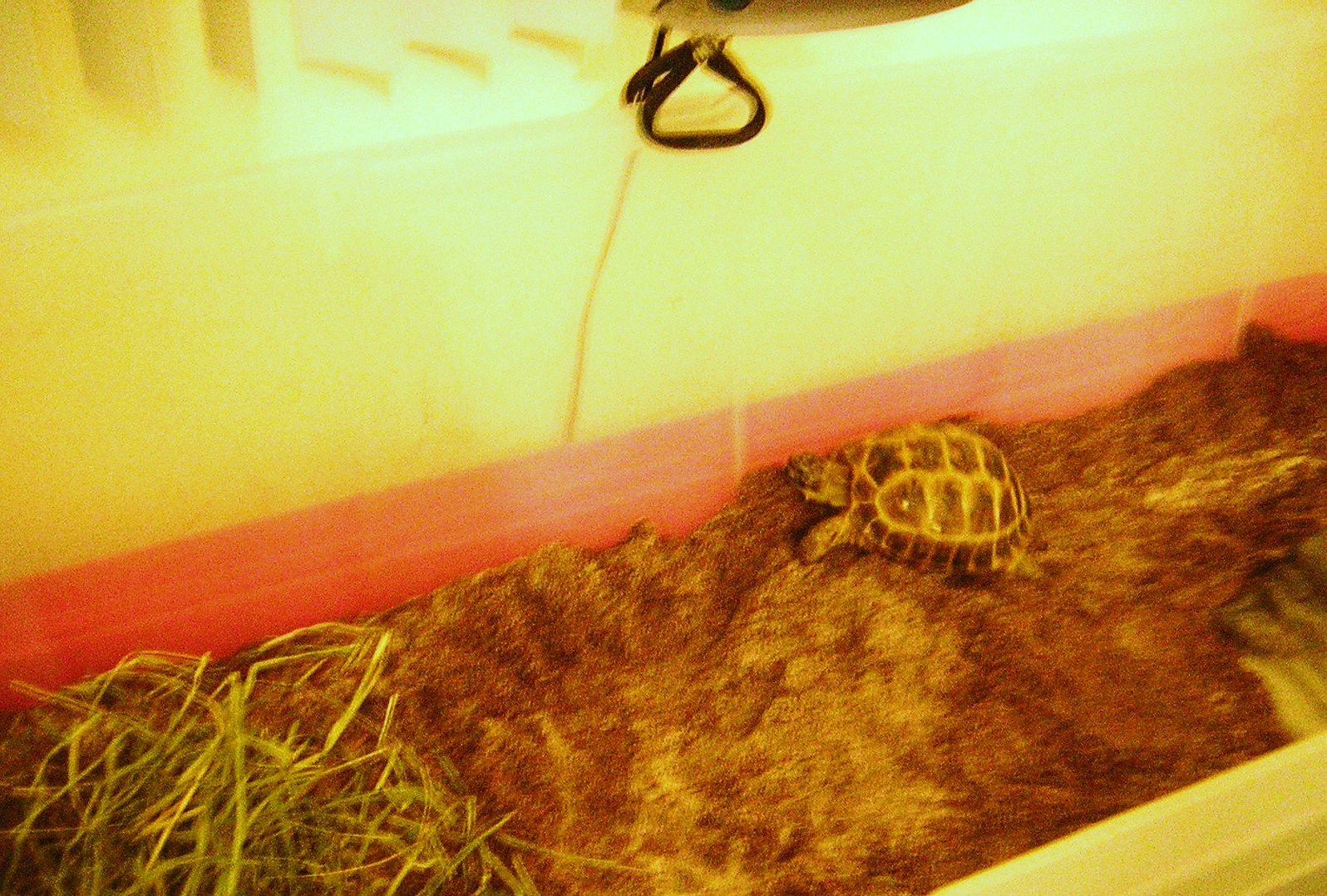


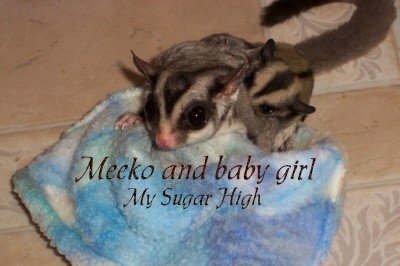

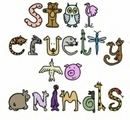
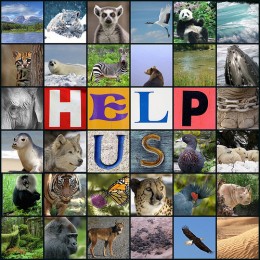
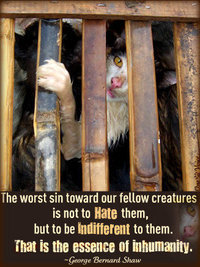


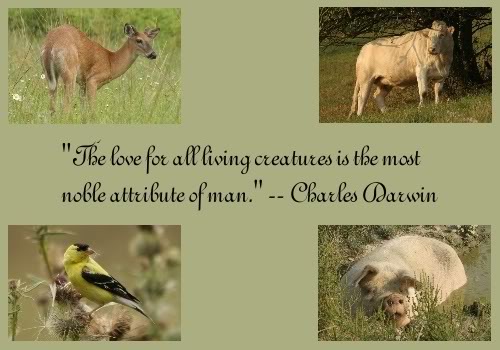
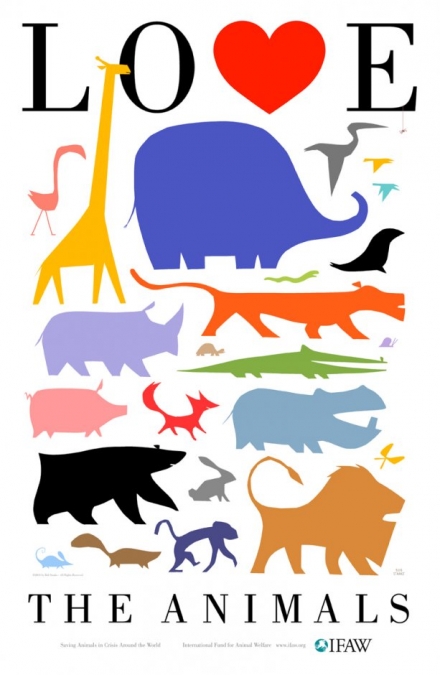

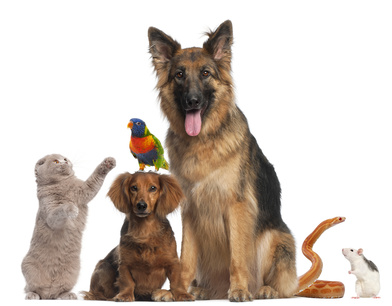
<3
